Plenary Speakers
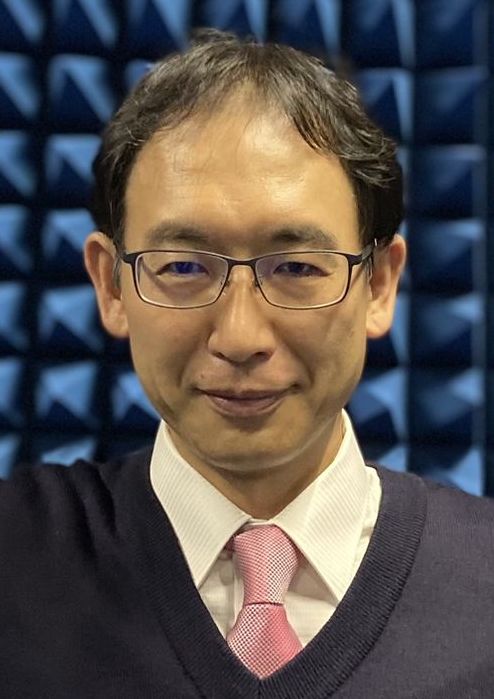
Prof. Dr. Shin-Ichiro Kuroki
✧ Affiliation: Vice-Director of Research Institute for Semiconductor Engineering (RISE), Hiroshima University, Japan
✧ Email: skuroki[at]hiroshima-u.ac.jp
✧ Website: http://www.rnbs.hiroshima-u.ac.jp/index-e.html
Shin-Ichiro Kuroki is Professor of Hiroshima University, and Vice-Director of Research Institute for Semiconductor Engineering (RISE), Hiroshima University, Japan. He received a Ph.D degree from Hiroshima University in 2002. From 2002 to 2005, he worked for the Research Center for Nanodevices and Systems of Hiroshima University as a Researcher for Industry-University-Government cooperation.In 2005, he joined the Graduate School of Engineering, Tohoku University, Japan, as an Assistant Professor. In 2012, he joined Hiroshima University as an Associate Professor. In 2019, he became a Professor at Hiroshima University. His current research interests are silicon carbide (SiC) CMOS integrated circuits, silicon thin film transistors and its applications.
Keynote Speakers
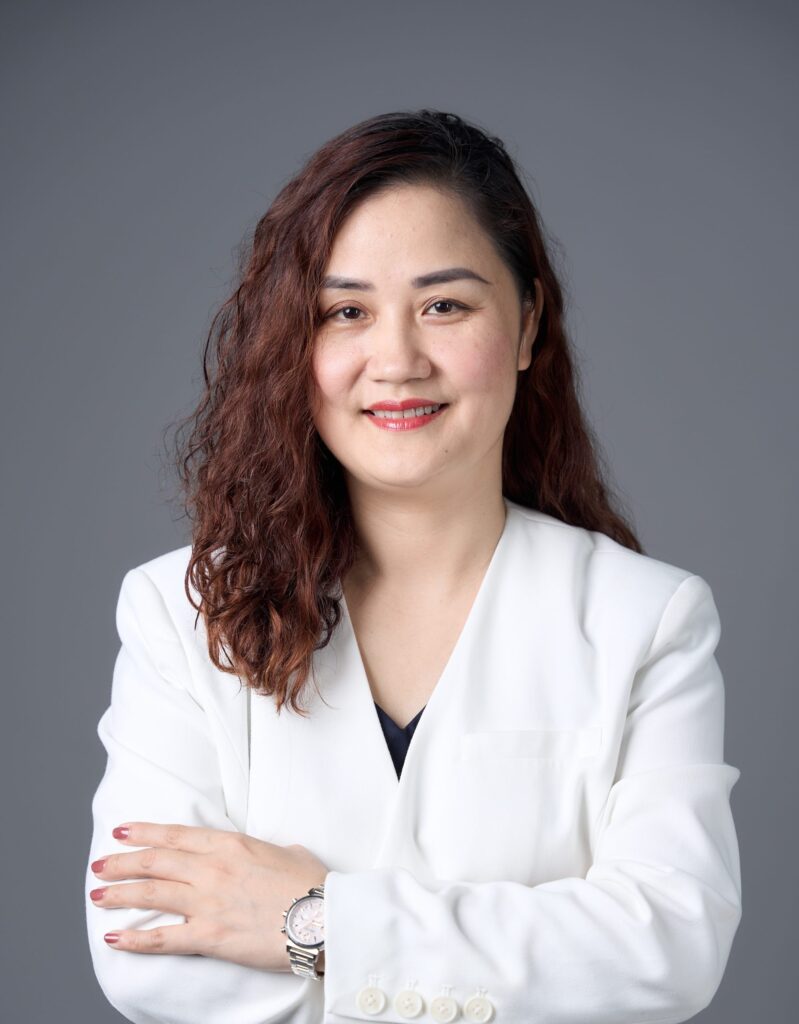
Dr. Phung Thi Viet Bac
✧ Affiliation: Director of Research and Innovation, Executive Director of Center for Environmental Intelligence, VINUNIVERSITY
✧ Email: bac.ptv[at]vinuni.edu.vn
✧ Website: Phung Thi Viet Bac – VinUni
Dr. Phung Thi Viet Bac received her PhD in Computational Science and Physics from Kanazawa University, Japan in 2009, and her MSc and BSc in Chemistry from Vietnam National University, Hanoi and Hanoi National University of Education in 2005 and 2002, respectively. After receiving her PhD, she continued her postdoctoral research at Kanazawa University and the National Institute of Industrial Science and Technology (AIST) from 2009 to 2012. Dr. Viet Bac’s research focuses on Material Simulation Design, applications in sensors, energy conversion and storage. In 2013, she was a researcher at the Japan Advanced Institute of Science and Technology (JAIST) working in the fields of photovoltaic cells, low-dimensional materials and nano-devices. After that, Dr. Viet Bac spent 4 years teaching and researching at Fukui University, Japan. From 2018 to 2023, she worked at Vietnam Japan University – Vietnam National University, Hanoi as a lecturer and researcher. She led a research group on Multi-scale Material Design and Simulation at the Institute for Sustainable Science. During that time, she was also the Scientific Secretary at the VinFuture Prize Foundation.

Dr. Brent A. Jones
✧ Affiliation: Hirao School of Management, Konan University, Japan
✧ Email: bjones[at]konan-u.ac.jp
Brent A. Jones is currently the Director of Language Programs at Konan University, Hirao School of Management, where since 2009 he has helped develop a content and language integrated (CLIL) program. From 2021 to 2023 he was the Coordinator of Teachers Helping Teachers (THT) Special Interest Group (SIG) within the Japan Association for Language Teaching (JALT). His major research interests are L2 learning motivation and engagement, instructional technology, instructional design, CLIL, curriculum and materials development, genre approaches to second language reading and writing, and extensive reading. He completed his Educational Doctorate through the Institute of Education at the University of Reading.

Dr. Roger Palmer
✧ Affiliation: Hirao School of Management, Konan University, Japan
✧ Email: roger[at]konan-u.ac.jp
Roger Palmer is originally from the UK but now resides in Japan. A graduate of the University of London, he is Professor at the Hirao School of Management, Konan University in Japan, where he has been working since 2009. He is the author of EFL/ESL textbooks for Pearson ELT and Cengage for learners of English throughout Asia. Among his conference presentations, he has been Featured Speaker at the Asian Conference on Technology in the Classroom (Japan), Keynote Speaker at the UiTM Blended Learning Colloquium (Malaysia), and Plenary Speaker at TEFLIN (Indonesia). As part of the Japan Association for Language Teaching (JALT), Roger has played an active role in teacher training seminars for the Teachers Helping Teachers (THT) Special Interest Group in Kyrgyzstan, Laos and Vietnam. In recognition of his efforts over many years as THT delegate leader to Kyrgyzstan, the title of Honorary Professor at Bishkek State University was conferred upon him in 2018. His research interests include content-based language instruction, genre-based pedagogy, ICT, materials development, and social semiotics.

Prof. Sean A. White
✧ Affiliation: Faculty of Business Administration, Ryukoku University
✧ Email: white[at]biz.ryukoku.ac.jp
Sean White is professor of English Communication in the Faculty of Business Administration and Interfaculty English Communication Course at Ryukoku University, Kyoto. He received his Ph.D. in Teaching English to Speakers of Other Languages from the University of Kansas, USA, and M.Ed. in Japanese Language Education from Shimane University, Japan. He has taught English in Japanese higher education for more than 25 years, with the last 15 involving internet and mobile technology-based virtual exchange. In addition to teaching at Ryukoku, he has served as Dean of the university’s International Center and Executive Board Member of the Center for the Promotion of Global Education. His research interests include reading and writing instruction, technology and culture in language education, and educational policy.

Prof. Jane Singer
✧ Affiliation: Department of Global Studies, Kyoto University of Foreign Studies
✧ Email: j_singer[at]kufs.ac.jp
Jane Singer is professor in the Department of Global Studies at Kyoto University of Foreign Studies. She received a BA from the University of the Pacific (California, USA), and an MA in international affairs from the School of International and Public Affairs at Columbia University. In 2015 she was awarded a Ph.D. from the Graduate School of Global Environmental Studies, Kyoto University. Her thesis explored improving outcomes for ethnic minority communities in Vietnam who are displaced by hydropower dam construction. Her current research focuses on development-forced displacement and resettlement as well as university-led community engagement. As associate professor she taught undergraduate and graduate courses at Kyoto University for 11 years and she has served as lecturer at Ritsumeikan and Doshisha Universities in Kyoto, Japan. She has published 37 book chapters and journal articles. She has also released four books on community resilience and displacement, all from Routledge, including Development-Induced Displacement and Resettlement in Vietnam (2023), co-edited with Mr. Nguyen Quy Nghi of the World Bank.
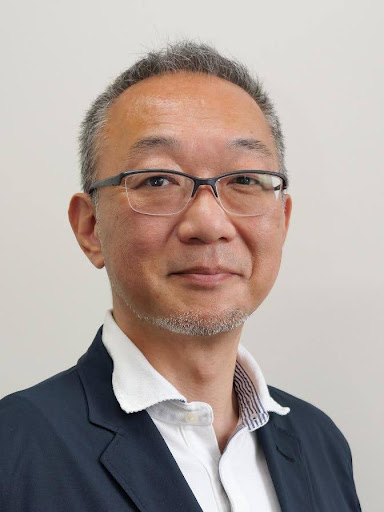
Prof. Kohei SOGA
✧ Affiliation: Department of Medical and Robotic Engineering Design, Tokyo University of Science.
✧ Email: soga[at]rs.tus.ac.jp
✧ Website: https://ksoga.com/soga/
Prof. Soga started his research on rare-earth-doped luminescent materials in 1990 as a graduate student at the University of Tokyo. He later explored the potential applications of photonic materials, especially those relating to optical communication. Driven by the desire to observe the deeper region of biological systems, he has been challenged to develop biophotonic systems under near infrared (NIR) excitation since 2004. NIR light is located between the UV and (mid) IR wavelength range, where a valley is formed in optical loss spectra of biological tissues. By utilizing this NIR transparent wavelength range for bio and medical photonics, he could take advantage of transparency. He is an inventor for various NIR bioimaging systems. The advance of this technique has potential to revolutionize our understanding of fundamental physiological processes and pave the way for innovative interventions in fields such as oncology, neurology, and regenerative medicine.
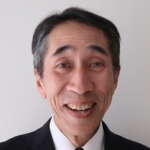
Prof. Hisayuki Suematsu
✧ Affiliation: Nagaoka University of Technology
✧ Email: suematsu [at] vos.nagaokaut.ac.jp
Hisayuki Suematsu is a Professor of Extreme Energy-Density Research Institute and Nuclear System Safety Engineering at Nagaoka University of Technology, Japan. He earned his B.S. in Inorganic Materials from Tokyo Institute of Technology, Japan in 1986 and M.S. and Dr. Eng. degrees in Nuclear Engineering from the same university in 1988 and 1991, respectively. He joined Los Alamos National Laboratory as a post doc in 1991 and then moved to National Institute of Inorganic Materials, Japan in 1993. From 1995, he was a Research Associate at Tokyo Institute of Technology. Since 2000, he has worked at Nagaoka University of Technology.
Dr. Suematsu is a Fellow of the Ceramic Society of Japan and has been a member of The American Ceramic Society’s Engineering Ceramics Division’s executive committee. Dr. Suematsu has various research interests including development on new material/compound synthesis methods under extreme conditions, novel high-Tc superconductors, applications of pulsed particle beams, and production of medical radioactive isotope. He has authored or co-authored over 240 archival publications and has given more than 30 invited/plenary/keynote talks in the field of materials. He has received many awards and fellowships including Ceramic Society of Japan Award for Achievements in Ceramic Science and Technology, Ceramic Society of Japan (1997), Global Star Award, American Ceramic Society (2014), Global Ambassador Program Award, American Ceramic Society (2016), Nuclear Education Award, Kanto-Koetsu Office, Atomic Energy Society of Japan (2016), Poster Award (2018), Fellow in Ceramic Society of Japan (2020), Fellow, American Ceramic Society (2021), Academician, World Academy of Ceramics (2022), and Best Paper Award (2022).

Prof. Takashi Ogi
✧ Affiliation: Department of Advanced Science and Engineering, Hiroshima University
✧ Email: ogit[at]hiroshima-u.ac.jp
Professor Takashi Ogi received his Bachelor’s degree in Chemical Engineering from Hiroshima University in 2004 and his Master’s degree in 2006, followed by a Ph.D. (Engineering) in Chemical Engineering at Hiroshima University in 2008.
He served as a JSPS Research Fellow from 2006 to 2008, an Assistant Professor at Osaka Prefecture University from 2008 to 2010, and an Assistant Professor at Hiroshima University from 2010 to 2014. He then worked as an Associate Professor at Hiroshima University from 2015 to 2020, before assuming his current position as Full Professor. He also served as a Visiting Professor at the Institute for Chemical and Bioengineering, ETH Zurich, from April to September 2015.
His research focuses on the development of functional particulate materials for energy, environmental, and resource-efficient applications. He has received numerous awards, including the 2020 MEXT Young Scientists’ Prize, the 2012 Young Researcher Award from the Society of Chemical Engineers, Japan, the 2013 Asian Young Aerosol Scientist Award, and the Young Researcher Award from the Society of Powder Technology, Japan.
To date, he has published 249 SCI-indexed scientific papers, over 40 review articles, contributed to more than 20 books, and holds more than 10 patents. He is currently a faculty member of the Chemical Engineering Program, Graduate School of Advanced Science and Engineering at Hiroshima University, and serves on the editorial boards of Advanced Powder Technology and the Journal of Nanoparticle Research.

Prof. Hirokazu Tada
✧ Affiliation: Graduate School of Engineering Science, Osaka University
✧ Email: tada[at]molectronics.jp
Prof. Hirokazu Tada is a distinguished researcher and professor at Osaka University’s Graduate School of Engineering Science, specializing in molecular electronics, nanoscale materials, and functional solid-state chemistry. He received his PhD in Science from the University of Tokyo and has devoted his career to bridging chemistry, physics, and engineering to develop next-generation molecular-scale devices.
His research focuses on:
– Molecular electronics: Single-molecule junctions, molecular wires, and nanoscale charge transport.
– Nano- and thermoelectronics: Exploring heat and electron transport at the molecular level.
– Functional materials: Design of organic and organometallic materials, thin films, and interfaces for advanced electronic and spintronic applications.
Prof. Tada has published over 160 scholarly articles, contributing to fundamental understanding and potential technological innovations in molecular electronics. His work aims to realize “bottom-up” electronic devices, combining molecular design with precise physical characterization.
Beyond research, he plays an active role in advancing the materials science community in Japan, particularly through Osaka University’s Frontier Materials Science / Molecular Electronics Research Group. Prof. Tada’s pioneering studies continue to shape the future of nanoscale and molecular device engineering, influencing both fundamental science and applied technology.

Prof. Pham Nam Hai
✧ Affiliation: Department of Electrical and Electronic Engineering, Institute of Science Tokyo
✧ Email: pham.n.ab[at]m.titech.ac.jp
Prof. Pham Nam Hai is the vice-head of electrical and electronic engineering at Institute of Science Tokyo, with expertise in spintronics. His research interests include ferromagnetic nanoclusters, ferromagnetic semiconductors, ferromagnet/semiconductor hybrid systems, topological insulators, topological semimetals, and their applications to spintronics and AI. He has served as a representative member of the Japan Society of Applied Physics, on the editorial committee, and as an editor-in-chief of spintronics for the Magnetics Society of Japan (MSJ). He has served as a research director for various projects of the Japan Science and Technology Agency (JST), and has collaborated with the R&D unit of major semiconductor and magnetic storage companies, including Kioxia, TDK, Samsung, and Western Digital. He received the SSDM Young Researcher Award (‘09), the Ando Memorial Award (‘14), the Marubun Research Award (‘17), the German Innovation Award (Gottfried Wagener Prize) (‘19), Asian Scientist 100 (‘20), and the MSJ Outstanding Research Award (‘20).
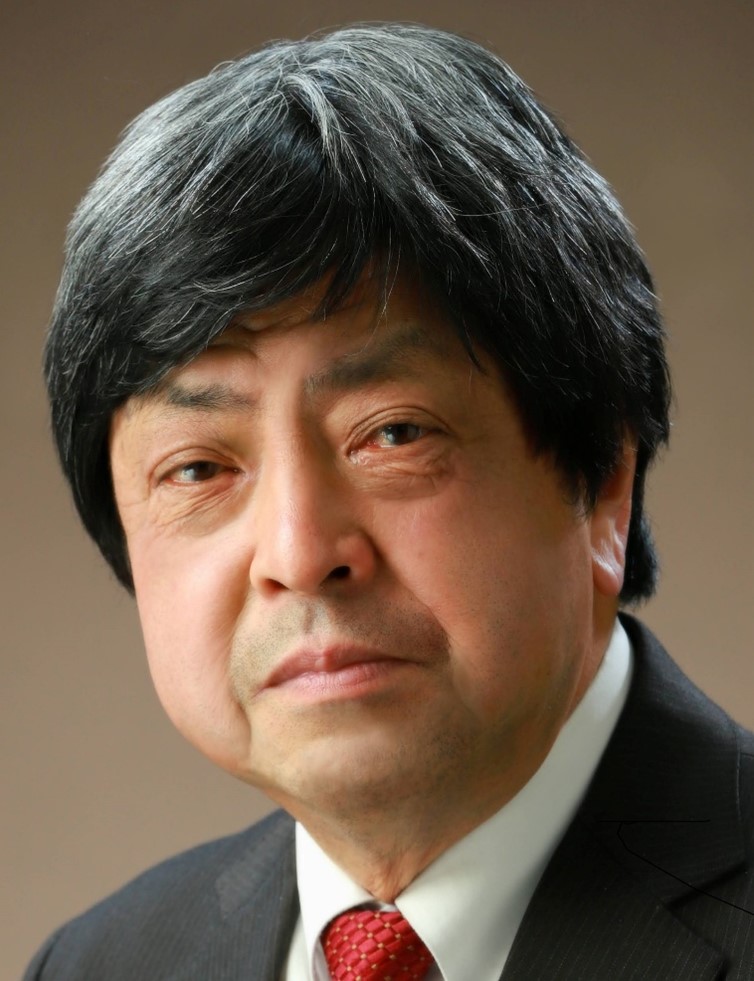
Dr. Shigeo FUJII
✧ Affiliation: The Lake Biwa Environmental Research Institute, Shiga Prefecture
✧ Email: shigeofujii.eden2[at]gmail.com
1974-80 Bachelor and MC in the Sanitary Engineering, Kyoto University.
1980-91 Research Associate and Lecturer in the Faculty of Engineering, Kyoto University
1981-93 Assistant and Associate Professor of AIT (Asian Institute of Technology)
1993-98 Associate Prof, of Environmental Systems Engineering, Ritsumeikan University
1998-24 Associate Prof., Professor and Visiting Professor in Kyoto University.
2025- (present)Senior Director, Shiga prefecture Lake Biwa Research Study Center.
<Awards> ・IWA(International Water Association) Fellow (2010), ・Recognition Award for outstanding contribution to HUST (Hanoi University of Science and Technology) (2016), ・Professor Emeritus of Kyoto University (2021), ・Honorary Professor of Hue University (2023), ・KKNN Fellow (2023)
Invited Speakers
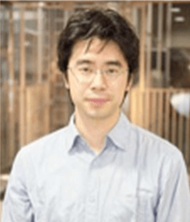
Dr. Tomohiro Machikita
✧ Affiliation: Center for Southeast Asian Studies (CSEAS), Kyoto University
✧ Email: machi[at]cseas.kyoto-u.ac.jp
Biography
Tomohiro Machikita earned his Ph.D. in Economics from Kyoto University in 2007, with a thesis titled “Empirical Essays on Labor Mobility in a Developing Economy: Evidence from Thailand.” Before his current role, he worked at the Institute of Developing Economies (IDE‑JETRO) (2006-2019) and the Institute of Economic Research, Hitotsubashi University (2004-2006). Machikita’s research spans the intersection of labour economics, industrial development, economic geography, and globalization. His core interests include firm-to-firm matching and technology transfers, managerial capability acquisition, the evolution of production chains in East and Southeast Asia, labour mobility, temporary employment, and the spatial dynamics of economic activity. He has used rich empirical data—surveying firms in ASEAN countries, analysing labour markets in Thailand, and exploring historical Japanese firm lifecycles—to uncover how the micro-dynamics of workers and firms contribute to macro-patterns of economic development. For example, his work explores how upstream–downstream linkages influence innovation, and how platform technologies and labour mobilities shape regional growth.
At Kyoto University, Machikita teaches courses such as Economic Approach to Southeast Asia II and seminars on environment, society and culture, drawing on his fieldwork and empirical research in the region.His scholarly contributions have been recognised via competitive grants (e.g., Japan Society for the Promotion of Science KAKENHI awards) and editorial roles (he serves as Associate Editor of the journal The Developing Economies).
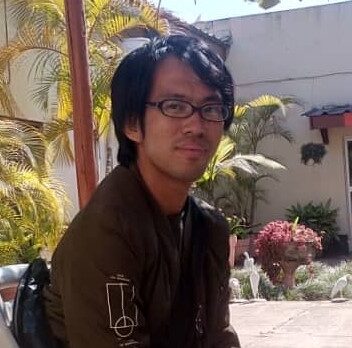
Dr. Ken Miura
✧ Affiliation: Division of Natural Resource Economics, Graduate School of Agriculture at Kyoto University
✧ Email: miura.ken.3e[at]kyoto-u.ac.jp
Biography
Ken Miura earned his Ph.D. in Economics from Brown University in 2020, following an M.A. in Economics from Brown (2014) and an earlier M.A. from Hitotsubashi University (2011). Prior to his current appointment, he served as an Assistant Professor at Kyoto University from 2020 to 2023. Miura’s research focuses on the intersection of development economics, agricultural economics, and the political economy of rural communities—especially in sub-Saharan Africa. He investigates household behaviour under risk, adoption of agricultural technology, intrahousehold bargaining, and public‐goods management in rural settings. For instance, his studies include how farmers in Zambia manage climate risk, access to weather-index insurance, and how household social structures affect resource allocation. Beyond empirical work in Africa, he has also published analyses concerning rural societies in pre-war Japan, demonstrating his broader interest in comparative perspectives on development.
Through rigorous field experiments, household surveys, and microeconomic analysis, Ken Miura has built a reputation for bridging theoretical development economics with on-the-ground agricultural and resource‐management issues. He continues to supervise graduate courses at Kyoto University, including development microeconomics and empirical methods in agricultural economics.
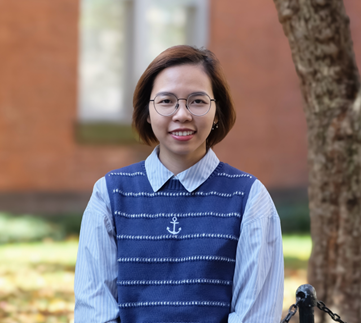
Dr. Trang Thanh Tran
✧ Affiliation: Yamanashi Gakuin University
✧ Email: tran.trang[at]c2c.ac.jp
Biography
Dr. Trang Thanh Tran is a Lecturer in Economics at Yamanashi Gakuin University, where she teaches courses in microeconomics, macroeconomics, labor economics, and development economics. Her teaching bridges rigorous economic theory with real-world applications, aiming to equip students with strong analytical skills and a deep understanding of labor markets and policy dynamics.
Her research specializes in labor economics and development economics, with a focus on minimum wage regulation, informal employment, labor mobility, and welfare outcomes in developing contexts. She employs individual-level data and an event-study design to analyze how minimum wage changes influence labor force participation, formal and informal employment, and secondary job dynamics.
In addition, Trang works on several policy-relevant research projects, including: the unification of wage floors across sectors and its impact on regional labor market structure; the long-term well-being consequences of short-term displacement; the influence of Vietnamese immigration on the U.S. shrimp industry; and the labor market effects of mining accidents. Her work combines empirical rigor with substantive policy implications, making a meaningful contribution to our understanding of labor markets in transition economies.
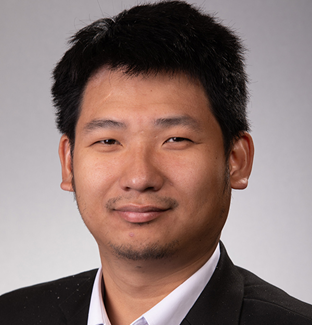
Dr. Vuong Dinh Tuan Nguyen
✧ Affiliation: University of Tsukuba
✧ Email: vuong.nguyen.ge[at]u.tsukuba.ac.jp
Biography
Dr. Vuong Dinh Tuan Nguyen is a Vietnamese economist whose academic trajectory has taken him through multiple countries and institutions. He earned his B.A. in Economics at Foreign Trade University (Vietnam) in 2014, followed by an M.A. in Economics from Ritsumeikan University (Japan) in 2016, another M.A. from the University of Maine (USA) in 2018, and finally a Ph.D. in Agricultural & Applied Economics from the University of Wisconsin–Madison (USA) in May 2024. In his research and teaching career, Nguyen specialises in economic policy, human capital accumulation, and environmental issues, particularly in the Vietnamese context. He currently serves as an assistant professor at the Institute of Humanities and Social Sciences, University of Tsukuba in Japan, where his profile lists his main research fields as economic policy, human capital, environmental issues, and Vietnam. Among his publications are “Getting to Grade 10 in Vietnam: Does an employment boom discourage schooling?” (with Ian Coxhead and Nguyen Phong), and “Income shock and food insecurity prediction: Vietnam under the Pandemic” (co-authored). With this background, Nguyen sits at the intersection of development economics, labour-market dynamics, and policy evaluation in Vietnam and the broader East/Southeast Asian region, bringing together rigorous quantitative methods and policy-oriented insights.
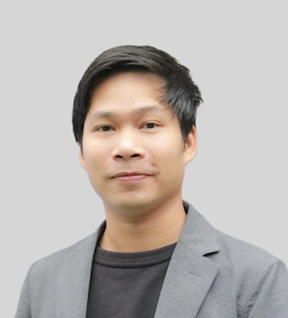
Dr. Nguyen Anh Hao
✧ Affiliation: Waseda University
✧ Email: nguyenanhhao040294[at]gmail.com
Biography
Anh Hao Nguyen is currently an Assistant Professor (non-tenure-track) at the Graduate School of Asia‑Pacific Studies, Waseda University (GSAPS) in Tokyo (2024-present). He holds a Ph.D. in Business Administration from Yokohama National University, earned through the Graduate School of International Social Sciences (2019–2023). His Master of Business Administration came from the Vietnam Japan University, Vietnam National University, and his Bachelor’s in Business Administration from the University of Economics and Business (Vietnam National University). Nguyen’s field of specialization encompasses Business Administration, Behavioral Operations Management, Organizational Behavior, and Human Resource Management. His research theme focuses on the relationships between personality traits, emotional states, behaviors, and workplace performance among Japanese and Vietnamese employees—paying attention to how international, cultural, organizational and individual factors interact. He has been recognized with awards such as the Best Paper Award at the International Conference on Emerging Challenges: Smart Business and Digital Economy (ICECH 2023) and a “Highly Commended Paper Award” at the 6th World Conference on Production & Operations Management (P&OM 2022).
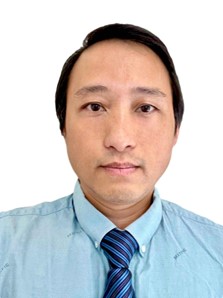
Dr. Nguyen Thanh Hung
✧ Affiliation: Director, V-Mio System JSC
✧ Email: hungnt[at]miosys.vn
Biography
Hùng Nguyễn is a Japan-based technology executive serving as Director of V-Mio System JSC, the Hanoi subsidiary of Mio System that provides software, IoT and image/voice/AI solutions for manufacturing and inspection clients. V-Mio System (est. 2013) positions itself as a Japan-quality / Vietnam-cost development arm that builds embedded/IoT systems, image-processing and cloud backends. His role sits at the intersection of technical delivery and Japan–Vietnam business coordination.
He studied at Ritsumeikan University, Hùng appears to combine bilingual and cross-cultural experience with hands-on leadership in software and IoT product development for Japanese manufacturers and international clients, focus on image recognition, voice processing, sensor/robotics integration and cloud/AI solutions — consistent with a director who oversees client relations, cross-border project management and product strategy between the Japanese parent and the Vietnamese engineering arm.
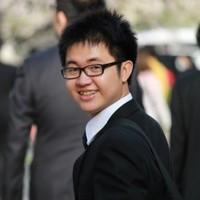
Dr. Tung D. Ta
✧ Affiliation: Graduate School of Information Science and Technology at the University of Tokyo.
✧ Email: tung[at]csg.ci.i.u-tokyo.ac.jp
Biography
Tung D. Ta is an Assistant Professor at the Graduate School of Information Science and Technology at the University of Tokyo, where he is part of the Department of Creative Informatics in the Chiba Laboratory. His research sits at the cutting edge of digital fabrication, soft robotics, and human–computer interaction, with a particular focus on flexible electronics, printable robotic systems, and novel actuation mechanisms. Blending creativity with engineering precision, he explores how new materials and fabrication techniques can enable the next generation of soft-bodied machines and interactive devices.
Dr. Ta earned his Ph.D. in Information and Communication Engineering from the University of Tokyo in 2019, following an M.E. in 2016 and a B.E. in Software Engineering from FPT University in Vietnam in 2012. At UTokyo, he leads a research group developing soft robots, hybrid gripping systems, and digitally fabricated components that leverage anisotropic materials and advanced design principles. His work combines robotics, material science, and fabrication technologies to advance scalable, adaptive, and human-friendly robotic systems.
Recognized for his contributions, Dr. Ta serves as Principal Investigator on major research grants, including a multi-year Grant-in-Aid for Scientific Research supporting his development of modular soft robot platforms. He also co-leads a UK–Japan international partnership exploring foundation models for soft-robot design. Outside the laboratory, he enjoys reading, programming, DIY electronics, and spending time with his family — often while experimenting with 3D printers and personal fabrication projects. His passion for innovation and hands-on creativity reflects a vision of robotics rooted not only in advanced theory but also in practical making and playful curiosity.

Dr. Nguyen Le Hoang
✧ Affiliation: Researcher at the Symbol Emergence Group of Taniguchi Lab, Kyoto University, Japan
✧ Email: nguyen.lehoang.4a[at]kyoto-u.ac.jp & nguyen.lehoang[at]em.ci.ritsumei.ac.jp
Biography
Nguyen Le Hoang is a postdoctoral researcher at the Symbol Emergence Group (Taniguchi Lab) at Kyoto University in Japan. He holds a Ph.D. from Ritsumeikan University, Japan (2025), an M.Sc. from Ho Chi Minh City University of Technology (2021), and a B.Sc. from Ho Chi Minh City University of Information Technology (2013), Vietnam.
His research interests include emergent communication, multi-agent intelligence, and the formation of internal representations that link perception with meaning. He studies how artificial agents construct and share structures of understanding, and how communication systems and abstract concepts can arise naturally from interaction.
Beyond academia, he has a diverse background: his earlier career included technical and managerial roles in Vietnam, including working as a software developer, specialist, and manager across private firms and academic institutions. He is also an active individual who enjoys sports (cycling, swimming, football), travelling, and connecting with diverse cultures.
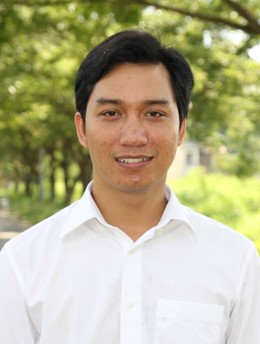
Dr. Tran Nhut Thanh
✧ Affiliation: Faculty of Automation Engineering, Can Tho University, Vietnam
✧ Email: nhutthanh[at]ctu.edu.vn
Biography
Dr. Nhut-Thanh Tran is a researcher specializing in advanced sensing technologies and machine learning for non-destructive evaluation, with applications in spectroscopy, machine vision systems, biomedical sensors, and AI-driven quality assessment in agriculture, aquaculture, and healthcare.
He obtained his Bachelor’s degree in Mechatronics from Can Tho University, Vietnam (2008), followed by a Master’s degree in Automation from Ho Chi Minh City University of Technology, Vietnam (2011), and a Doctoral degree in Engineering Design from the Graduate School of Science and Technology, Kyoto Institute of Technology, Japan (2021).
Dr. Tran began his professional career as a hardware engineer at Renesas Design Vietnam (2009) and then served as a lecturer at Mekong University (2010–2012) and Can Tho University (2012–present). He gained international research experience as a research assistant at Kyoto Institute of Technology (2020–2021) and Kyoto University (2025), and he is currently a postdoctoral researcher at Kyoto Institute of Technology, Japan. His work focuses on interdisciplinary approaches combining sensing technologies and AI/ML to develop intelligent, non-destructive quality assessment systems.

Dr. Tran Duc Thuan
✧ Affiliation: Project Manager at FPT Software Japan
✧ Email: thuantd8[at]fpt.com
Biography
Dr. Duc Thuan Tran earned his Ph.D. from Nagoya University in 2020. He is currently working as a Project Manager at FPT Software Japan, focusing on automotive software development.
At the upcoming conference, Dr. Tran will present on “Applications of AI in Automotive Software Development”, exploring cutting-edge topics such as AI, Electric Vehicles (EV), and Software-Defined Vehicles (SDV).
His academic background includes substantial research in engineering and materials science — for example, his paper on the “Impulse and mass removal rate of aluminum target” published in the Journal of the American Institute of Physics demonstrates his strong analytical and experimental skills.
With his combined experience in advanced research and practical project management, Dr. Tran brings a valuable interdisciplinary perspective at the intersection of AI, automotive software, and engineering innovation.

Dr. Phan Thanh Nhat Khoa
✧ Affiliation: Institute of Laser Engineering, the University of Osaka
✧ Email: phan.thanh.nhat.khoa.ile[at]osaka-u.ac.jp
Biography
T. N. Khoa Phan is a Researcher at the Institute of Laser Engineering at the University of Osaka, where he is part of the Nakajima Laboratory. His research focuses on the cutting edge of high-power lasers for micromachining, nonlinear optics in semiconductors and nanomaterials, and microfabrication of sensor. He takes deep interest in metamaterial as a promising base to develop new optics in the terahertz and far infrared regions with various tunable parameters to suit different needs. Terahertz spectroscopy is one of his major tools in evaluating metal, semiconductor, polymer, and novel materials. Combining new fabrication technologies and novel evaluation techniques, he also aims at developing novel materials and devices to address the contemporary problems, including the next generation of semiconductors in solving the problem of climate change and greenhouse gas emissions and the detection of toxic waste in agriculture and industry in trace amounts, to name a few.
Dr. Phan earned his Ph.D. in Physics from the University of Osaka in 2024, following an MSc. from the University of Science-VNUHCM in Vietnam, which belongs to the Vietnam National University, Ho Chi Minh City, in the field of Physics of Radio and Electronics. During and after his MSc. course, he researched high-power lasers, nonlinear optics in the near-infrared and visible spectral regions, solar cell, and light-emitting diode and joined collaborative research on biosensor for medical diagnosis. At the University of Osaka, he is currently researching on ultrafast phenomena of free charge carrier in semiconductor using the terahertz time-domain spectroscopy technique and nonlinear phenomena in the terahertz and far infrared regions using the free electron laser. He also fabricates metamaterials and terahertz sources in collaboration with other research groups and develops new spectroscopic tools in material evaluation and fundamental science.
Dr. Phan is recognized for his major contribution to many research projects, including the projects funded by the Japan Society for the Promotion of Science (JSPS) via the Grant-in-Aid for Scientific Research (KAKENHI). He is also currently in collaboration with researchers from other research institutes and industrial partners. On his leisure time, he loves travelling to enjoy the food and the beautiful scenes around Japan as well as other countries. Balancing life after a hard-working time is one of the principles he adheres to for well-being and efficient work.
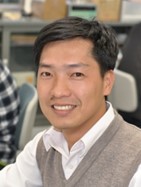
Assoc. Prof. Dr. Nguyen Van Toan
✧ Affiliation: Graduate School of Engineering, Tohoku University
✧ Email: nguyen.van.toan.c6[at]tohoku.ac.jp
Biography
Nguyen Van Toan received his B.S. in Physics (2006) and M.S. in Electronics (2009) from Vietnam National University, Ho Chi Minh City, and his Doctor of Engineering from Tohoku University in 2014 for research on silicon technologies for LSI-integrated timing devices. He is currently an Associate Professor at the Graduate School of Engineering, Tohoku University. He has published 90 peer-reviewed papers, four patents, one book, and four book chapters, and has presented at over 100 international conferences. His awards include IEEE-MEMS and IEEE-Transducers Research Travel Awards, Outstanding Paper Awards from IEEE-NANO and IEEE-NEMS, the IEEJ Best Paper Award (2019), and the Electrical Science Promotion Award (2022). His research focuses on micro/nano energy systems, resonators, thermoelectric generators, sensors, and metal-assisted chemical etching.

Asst. Prof. Dr. Nguyen Thi Van Anh
✧ Affiliation: Center for Science and Innovation in Spintronics, Tohoku University
✧ Email: nguyen.thi.van.anh.e7[at]tohoku.ac.jp
Biography
Dr. Nguyen Thi Van Anh an Assistant Professor of the Center for Science and Innovation in Spintronics, and concurrently, of Center for Innovative Integrated Electronic Systems, Tohoku University, Japan from 2018. She was a lecturer of Faculty of Physics, Hanoi National University of Education, Vietnam from 2006 to 2015. She did her post-doctoral research in Graduate School of Engineering, Osaka University from 2015 to 2018.
She received the PhD. degree from Osaka University, Japan in 2015.
Her research interests include the research and development of materials and devices toward applications in the low power consumed, highly integrated spintronic devices.
She has awarded by Ministry of Education and Training, Vietnam in 2008 for her participation as a Coordinator in the 39th International Physics Olympiad (IPho), held in Hanoi, Viet Nam. She has received various awards for best presentations at some domestic and international conferences.
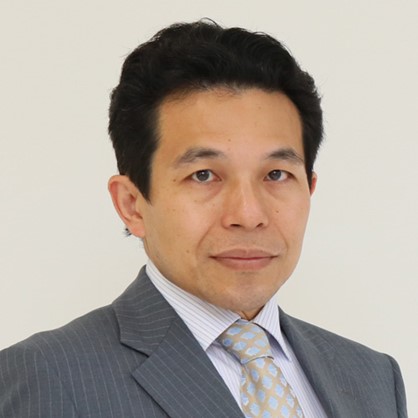
Prof. Soda Satoshi
✧ Affiliation: Department of Civil & Environmental Engineering School of Science and Engineering, Ritsumeikan University.
✧ Email: soda[at]fc.ritsumei.ac.jp
Biography
Education:
1995: B. Eng, Environmental Engineering, Osaka University
1997: M. Eng, Environmental Engineering, Osaka University
1999: D. Eng, Environmental Engineering, Osaka University
Career
1999-2005: Assistant Professor, Graduate School of Engineering, Osaka University
2005-2017: Associate Professor, Graduate School of Engineering, Osaka University
Apr 2017-present: Professor, College of Science and Engineering, Ritsumeikan University.
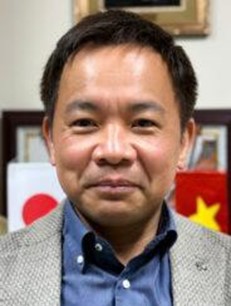
Prof. Tran Dang Xuan
✧ Affiliation: The IDEC Institute, Hiroshima University
✧ Email: tdxuan[at]hiroshima-u.ac.jp
Biography
2004, University of the Ryukyus, JSPS Postdoc
2006, University of the Ryukyus, Faculty of Agriculture, Department of Bioscience and Biotechnology, Assistant Professor
2012, Hiroshima University, Graduate School for International Development and Cooperation, Division of Development Science, Associate Professor
2020, Hiroshima University, Graduate School of Advanced Science and Engineering, Transdisciplinary Science and Engineering Program, Associate Professor
2022, Hiroshima University, The IDEC Institute, Center for the Planetary Health and Innovation Science (PHIS), Professor.
2022, Vietnam-Japan Specialist Society (VJS), Chairman
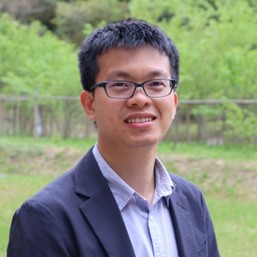
Dr. Tran Quoc Thinh
✧ Affiliation: Faculty of Life Sciences, Ritsumeikan University
✧ Email: thinh-89[at]fc.ritsumei.ac.jp
Biography
2012-2015: Master of Environmental Sciences, Graduate School of Environmental and Life Sciences, Okayama University, Japan.
2015-2018: PhD of Environmental Sciences, Graduate School of Environmental and Life Sciences, Okayama University, Okayama University, Japan.
2018-2022: Postdoctoral Fellowship, Research Organization of Sciences and Technology, Ritsumeikan University, Japan.
2022-present: Assistant Professor, Faculty of Life Sciences, Ritsumeikan University, Japan.

Dr. Vu Quang Cong
✧ Affiliation: Nano Life Science Institute, Kanazawa University
✧ Email: congvu[at]staff.kanazawa-u.ac.jp
Biography
Vu Quang Cong is a specially-appointed Assistant Professor at Nano Life Science Institute (WPI-NanoLSI), Kanazawa University, Japan. He is currently working on the development of thermogenetic tools for controlling cellular functions. Additionally, he is developing genetically encoded fluorescent biosensors using fluorescence lifetime imaging microscopy (FLIM) for quantifying cellular metabolites such as calcium ions, ATP, ATP/ADP ratio, GTP, and GTP/GDP ratio.

Asst. Prof. Le Nguyen Tra Mi
✧ Affiliation: University of Medicine and Pharmacy at Ho Chi Minh City
✧ Email: lntmi[at]ump.edu.vn
Biography
Dr. Le Nguyen Tra Mi received her Ph.D. from Hiroshima University in 2020. She served as an Assistant Professor at the Graduate School of Biomedical and Health Sciences, Hiroshima University from 2021 to 2024, and is currently a Lecturer at the University of Medicine and Pharmacy at Ho Chi Minh City. Her research centers on molecular microbiology, with particular emphasis on antimicrobial resistance, bacteriocins, and two-component regulatory systems in pathogenic bacteria.
She has published extensively on multidrug-resistant Gram-negative and Gram-positive pathogens, investigating their genetic determinants, biofilm formation, and resistance mechanisms. Her research integrates genomic analysis, molecular biology, and clinical microbiology to elucidate the molecular and ecological processes driving the emergence and dissemination of antibiotic-resistant bacteria in healthcare settings.
Through her work, Dr. Le contributes to the development of innovative strategies for the surveillance, prevention, and control of antimicrobial-resistant infections. She continues to advance research on bacterial signaling pathways, virulence regulation, and gene expression, with an emphasis on translational applications in diagnostics and infection management.

Asst. Prof. Nguyen Thanh Cong
✧ Affiliation: Faculty of Medicine, Kinki University
✧ Email: bsnguyenthanhcong[at]gmail.com
Biography
Cong Thanh Nguyen is an Assistant Professor in the Department of Microbiology, Faculty of Medicine, Kindai University (Japan). His research centers on virology and innate immunology, with a particular focus on the molecular mechanisms that regulate host responses to viral infection.
His recent work investigates immunometabolic change during viral infections of the central nervous system, with an emphasis on NAD metabolism and innate immune pathways. He has also contributed to studies on SARS-CoV-2 and influenza viruses, including research using non-human primate models to elucidate host–virus interactions.
Through an integrative approach that combines molecular biology, immunology, and infection biology, he seeks to advance the understanding of how viruses evade immunity and how host metabolic pathways shape disease outcomes. His work contributes to the development of new strategies for the prevention and treatment of viral infections.

Dr. Pham Minh Ngoc
✧ Affiliation: Postdoc Researcher at the Research Center for Environmental Quality Management. Department of Environmental Engineering, Graduate School of Engineering, Kyoto University
✧ Email: pham.ngoc.8m[at]kyoto-u.ac.jp
Biography
Dr. Pham Minh Ngoc is a Postdoctoral Researcher at the Research Center for Environmental Quality Management, Kyoto University. She earned her Ph.D. in Environmental Engineering from Kyoto University in 2024. Her research examines antimicrobial resistance across water and soil systems, with a focus on antibiotic-resistant bacteria and resistance genes in wastewater and sludge treatment processes. She investigates how treatment conditions influence the persistence, removal, and regrowth of ARB and ARGs, and how these resistance determinants migrate into receiving environments. Dr. Pham also studies the interactions between antibiotic residues, resistant microbes, and soil microbial communities to understand their implications for agricultural productivity and soil health. By integrating molecular analysis, microbial ecology, and environmental engineering, her work aims to advance sustainable strategies for AMR mitigation, particularly in developing and rapidly urbanizing regions.

Ms. Tran Thi Thu Ha
✧ Affiliation: Founder & CEO of Global Industry Investment Consulting Co., Ltd. (GIIC)
✧ Email: tranthithuha[at]giic.com.vn
Biography
Tran Thi Thu Ha is the Founder & CEO of Global Industry Investment Consulting Co., Ltd. (GIIC) — a company she established to deliver strategic advisory and investment services across industrial sectors. Based in Hanoi, GIIC specializes in management consulting, market research, investment promotion, and financial services.
Under her leadership, the company provides tailored solutions to support industrial growth, foreign investment, and corporate development. Ms. Ha has built a reputation for combining deep analytical insight with practical business acumen, helping clients navigate complex industrial and regulatory landscapes.
With her vision, GIIC plays a key role in facilitating global-industrial linkages and driving sustainable growth for Vietnamese and international partners.